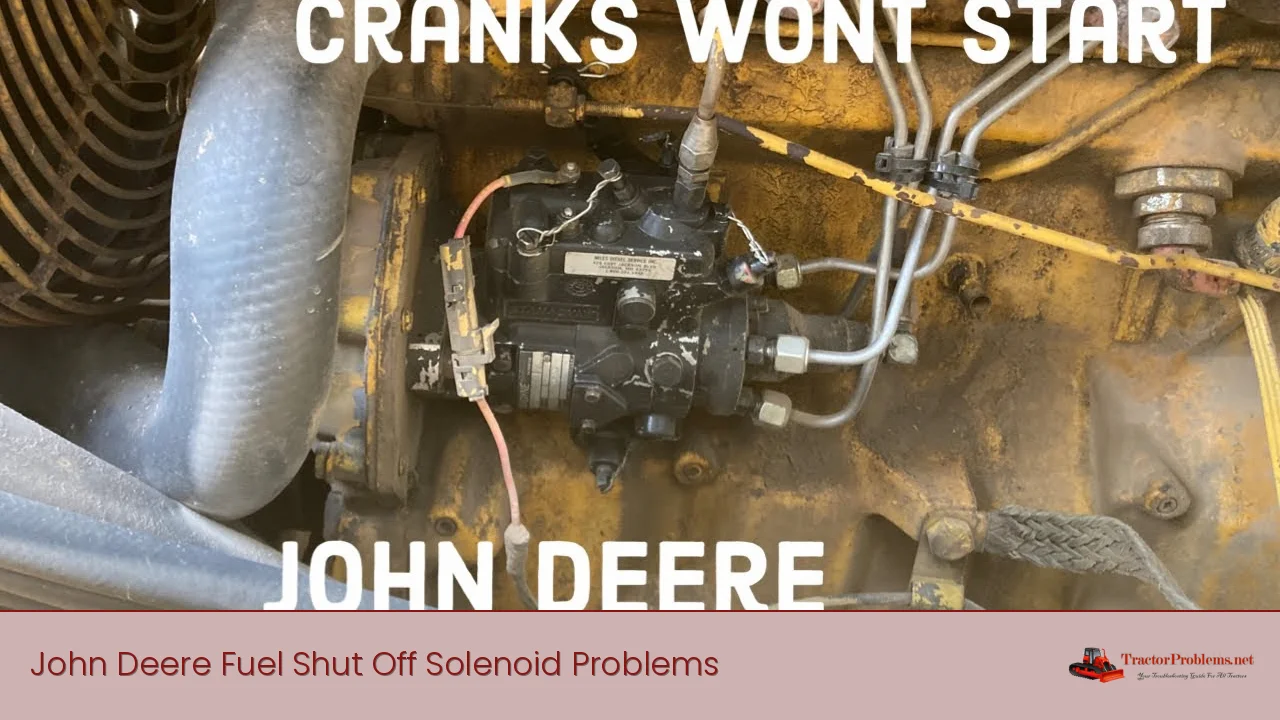Having problems with your John Deere Fuel Shut Off Solenoid? Don’t worry, this comprehensive guide will help you identify and troubleshoot the issue quickly and easily. Our expert tips and advice will give you all the information you need to get your engine running smooth again.
Troubleshooting John Deere Fuel Shut Off Solenoid Problems
Whether it’s a faulty solenoid, clogged fuel filter, or something else, fixing John Deere Fuel Shut Off Solenoid problems can be a challenge. In this guide, we’ll provide expert tips and advice on how to identify the issue, diagnose possible causes, and repair your engine so it runs smoothly again. We’ll cover topics such as when to replace the solenoid, how to clear a clogged fuel filter, and other important maintenance steps. With our helpful advice, you’ll be able to quickly and easily troubleshoot any John Deere Fuel Shut Off Solenoid problems.
| Step | Description |
|---|---|
| Identifying the Problem | Check the engine for signs of a faulty solenoid, such as an illuminated âcheck engineâ light, or other warning signs. |
| Diagnosing Possible Causes | Investigate potential causes of the issue, such as a clogged fuel filter, dirty fuel injectors, or an issue with the solenoid. |
| Repairing the Engine | Replace the solenoid and other components as needed, and clean or replace the fuel filter to restore engine performance. |
Identifying the Problem
The first step in troubleshooting a John Deere Fuel Shut Off Solenoid is to identify the root cause of the issue. Common problems include corrosion, mechanical damage, and a faulty solenoid. John Deere Fuel Shut Off Solenoid Problems can be quickly identified by examining the solenoid itself, its wiring, and the engineâs fuel system.
Cleaning and Inspecting
After identifying the problem, the next step is to clean and inspect the solenoid and its associated components. This includes removing any debris or dirt buildup, checking for signs of corrosion, and inspecting the wiring for any signs of damage. It is important to clean and inspect the solenoid thoroughly to ensure that the issue is resolved properly.
Replacing the Solenoid
If the solenoid is damaged or corroded, the best solution is to replace it with a new one. Replacing the solenoid is a relatively simple process and can be done with the help of experienced mechanics. Replacing the faulty solenoid is the best way to ensure that the issue is resolved quickly and efficiently.
Key Takeaways for Troubleshooting John Deere Fuel Shut Off Solenoid Problems
- Identify the root cause of the issue by examining the solenoid, its wiring, and the engineâs fuel system.
- Clean and inspect the solenoid and its associated components for any debris, dirt buildup, or signs of corrosion.
- Replace the solenoid with a new one if it is damaged or corroded.
- Seek the help of experienced mechanics if needed.
- Ensure that the issue is resolved properly by cleaning and inspecting the solenoid thoroughly.
Troubleshooting John Deere Fuel Shut Off Solenoid Problems
When it comes to troubleshooting John Deere fuel shut off solenoid problems, there are a few key takeaways that can help you quickly and efficiently resolve the issue. Identifying the root cause of the problem by examining the solenoid, its wiring, and the engineâs fuel system is the first step. Cleaning and inspecting the solenoid and its associated components is also essential to ensure that the issue is resolved properly. If the solenoid is damaged or corroded, it is best to replace it with a new one. Experienced mechanics can help with the process if needed. Following these steps can help you quickly and easily resolve John Deere fuel shut off solenoid problems.
